Relationship Counseling
Our relationship therapists in Cincinnati and Indianapolis are ready to help.
Relationship Problems
John Bowlby redefined the field of psychotherapy and understanding of relationships with his research and development of Attachment Theory. He stressed that the ability to relate to others and create close connections is the ultimate barometer of health and positive functioning. When your important relationships are in trouble, that means you are experiencing distress! People often find themselves repeating interpersonal patterns that reinforce a negative cycle of conflict, avoidance, and hopelessness. This guide explains relationship distress and the treatments that can help you and your relationships thrive.
Relationship Problems
High Conflict
- Conflict escalates
when one or both
partners sense
disconnection - Protest behaviors
(such as demanding,
clinging, criticizing,
etc.) activate as a way
to fight for connection
Disconnection
- When conflict feels
overwhelming,
patterns of avoidance
are an attempt to
soothe and protect - Many cope by
shutting down,
minimizing, problem
solving, and numbing out
Trust & Betrayal
- Infidelity, lies, and key
moments where a
partner wasn’t there
for you redefine the
relationship as unsafe - Healing these
ruptures allows
partners to move
forward and rebuild
trust
Playfulness, Sex & Intimacy
- Stress, relationship
tension, and other
factors can interfere
with capacity for fun,
pursuing dreams and
new experiences
together, and
contribute to sexual
dysfunction or
tension
Separation / Divorce Decisions
- Difficulty making
decisions about the
relationship occur
when one partner
wants to work on the
marriage and the
other is leaning out - Individuals may also
want support to
evaluate their needs
Divorce / Breakup Recovery
- Making sense of your
past is an important
part of creating the
future you want - Healing wounds
helps you rebuild
security & confidence - Learn how to get your
needs met in
relationships
Effective Treatments for Relationship Problems
Emotionally Focused Therapy
- Couples, individuals, and families can benefit from this
approach - Identify the negative patterns perpetuating disconnection
and distress in the relationship - Get support to understand your own and your partner’s
emotions and needs; understand your impact on each
other - Engage in transformative conversations that repair old
wounds and build trust and connection - Discover how to spot a rift before it widens
Gottman Method
- Use the Gottman Relationship Checkup Assessment to quickly identify strengths, weaknesses, and receive recommendations for therapy
- Couples learn communication and conflict resolution techniques to help you through gridlock conflicts
- Engage with interventions to build closeness, friendship, and shared meaning to create a stronger path forward
Discernment Counseling
- For couples who are ambivalent about staying in the marriage or proceeding with divorce, this time limited approach (up to 5 sessions) helps bring clarity and confidence
- Outcomes are framed into three paths: status quo (stay married), separation/divorce, or 6-month commitment to couples therapy
Take the Next Step with Support for Relationships

We want to help you create an individualized roadmap (a ThriveMap!) to get CLEAR DIRECTION on how you can achieve your goals and overcome your challenges.
1
Understand the Problem
2
Choose Treatment Targets
3
Create an
Action Plan
Frequently Asked Questions About Relationship Counseling
What is it like to work with our relationship therapists in the Indianapolis and Cincinnati areas?
We believe the connection with your therapist and having clear guidance about the treatment and therapeutic process are critical for a great therapy experience, that’s why we promise our clients Remarkable Connection and Clear Direction. Your unique needs and expectations matter to us as we work together to help you accomplish your goals. Here’s a snapshot of the ThrivePointe experience.

1. Build a Strong Therapeutic Relationship
Team up with a therapist who strives to deeply understand your experience and expertly guide you through the process of making changes.

2. Understand the Problem
Develop a clear picture of your problem, including your personal history, symptoms, triggers, and the ways your life is impacted.

3. Create an Action Plan
Using evidence-based approaches, design an individualized plan to achieve your goals.

4. Implement New Skills & Solutions
Get the right balance of support and challenge to make life and relationship changes.

5. Track Your Progress To Do What Works
Make sure therapy is helping by monitoring improvements and refining your action plan.

6. Achieve Your Goals
Experience the Satisfaction of working hard to see positive changes and growth in your life!
Bonding with others is our most critical survival strategy as humans. When you experience distress in your relationships such as a spouse, parent, child, boss, or friend, it has a profound impact on your sense of security, mood, and default reactions to cope. Kristen is a therapist with advanced training in EFT and can help you work through relationship distress with or without the person you are experiencing problems with.
She will help you makes sense of the negative patterns of interaction you are caught in and teach you what attachment distress looks and feels like. You’ll get expert relationship knowledge to spot what’s happening underneath the miscues people send with their words and behaviors. You can process painful experiences, unmet needs, and consider new perspectives about others as well. Instead of avoiding and suppressing your needs, feelings, and desires, you will get support to take gradual steps toward reaching and sharing. If you’re not sure if you want to work on repairing a rupture in a relationship, your needs will be honored every step of the way. You can get support to process your feelings, explore the risks of reaching, and problem solve strategies for engaging or not engaging the relationship.
What does relationship counseling look like?
Emotionally Focused Therapy (EFT) is an evidence based treatment approach that helps couples, families, and individuals get to the heart of their distress for change that lasts. You will take gradual steps toward deeper connection, trust, repairing wounds, and exploring new solutions.
- TRACK YOUR NEGATIVE CYCLE
- Name the problems you want to address.
- Track the patterns of interaction that block you from connection.
- Explore the needs that drive your reactions.
- Identify the miscues you each send and receive, and understand how they keep you feeling insecure about your bond.
- FEEL AND EXPLORE RAW SPOTS
- Slow down the cycle in session to deeply attend to each of your feelings, beliefs, and needs.
- Experience validation and support to stay with your emotions long enough to listen to what they’re telling you.
- Learn to work through triggers together so you don’t need to rely on emotion suppression, avoidance, or escalated conflict at home.
- SHARE IN NEW WAYS
- Make new connections in therapy and get support to open up about hurts, fears, and longings.
- Build confidence to express yourself, connection, and trust with each new experience of closeness and vulnerability.
- Get to know each other more deeply because of the new ways you communicate in session.
- RESPOND TO NEW EXPERIENCES
- Sharing new feelings, fears, and longings can feel like a big risk, so you will get support to express what the new reach is like for you.
- Experiences of skepticism, hurt, excitement, etc. are welcomed and worked through together.
- CELEBRATE MOMENTS OF CHANGE
- Strengthen your understanding of each other and your bond in each new encounter.
- Reflect on new experiences of closeness, support, and hope.
- Reshape your relationship over time, taking time to spot and celebrate the small shifts that move you towards a more soothing and secure style of interacting.
Want to Learn More About Relationship Counseling
in Ohio or Indiana?
We want to make finding treatment for relationship problems in Cincinnati and Indianapolis easy.
To get started with a relationship therapist, just follow these three steps:
- Find a therapist on our Team page.
- Call 833-914-4688 to make an appointment.
- Start making progress on your goals!
More ThrivePointe Counseling Services Near Cincinnati and Indianapolis
As a practice, we value treating the whole family’s needs. So, at our various ThrivePointe locations in Indianapolis, Greenwood, Blue Ash and Liberty Township, we can serve you. We provide adult counseling, couples counseling, child counseling and play therapy, teen counseling, family counseling and Christian counseling. Our team cares about you and wants to be a part of your thriving life. Learn more and call us today!

